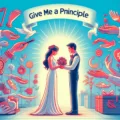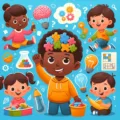Introduction
Teaching kids conflict resolution skills is important for their development and future relationships. Rather than seeing conflicts as bad, view them as opportunities to grow. This article shares 15 fun activities to help kids of all ages learn to resolve disagreements with compassion.
Listen Actively
Practice active listening by having kids use toys like puppets to act out a disagreement, then summarize what they heard. Taking turns helps them see the other perspective.
I-Messages
Have kids express feelings with “I-messages” like “I feel frustrated when you won’t share.” This avoids blaming. Praise them for using I-messages.
Role Playing
Act out scenarios where kids use respectful language and take accountability. Provide examples of how to compromise. Discuss their solutions.
Peace Table
Designate a small table just for talking through conflicts. Decorate it with peace signs and fill it with fidget toys. Going here signals willingness to find solutions.
Calming Strategies
Teach deep breathing, counting, or taking a break when emotions run high. Practicing these ahead of time makes them easier to use during conflicts.
Win-Win Solutions
After kids cool down, brainstorm solutions where both feel respected. Compromise requires give and take. Write ideas on paper to discuss calmly.
Feelings Pictures
Have kids draw or choose pictures showing different emotions, like happy, sad, frustrated, etc. Discuss what leads to these feelings and positive ways to deal with them.
FAQ
What are some benefits of teaching kids conflict resolution skills?
It helps them develop emotional intelligence, critical thinking, accountability, compromise, empathy, and problems solving skills. This leads to better relationships.
What causes most conflicts between kids?
Sharing toys, lack of listening, misunderstandings, jealousy over friends or siblings, and impulsive reactions often spark disagreements between kids.
How can parents model good conflict resolution at home?
Stay calm, listen fully to understand, express feelings via I-messages, apologize for mistakes, forgive easily, compromise, and reassure kids of their value during and after conflicts with gentle affection.
What should kids avoid doing during disagreements?
Name-calling, making threats, physical aggression like hitting or kicking, breaking things, refusing to listen, pouting, or holding grudges will only escalate conflicts.
When should an adult intervene in kids’ conflicts?
Step in if it gets physically aggressive, very loud, or disrespectful. Also if kids seem unable to calm down or find solutions themselves. Offer facilitated guidance talking through disagreements.









